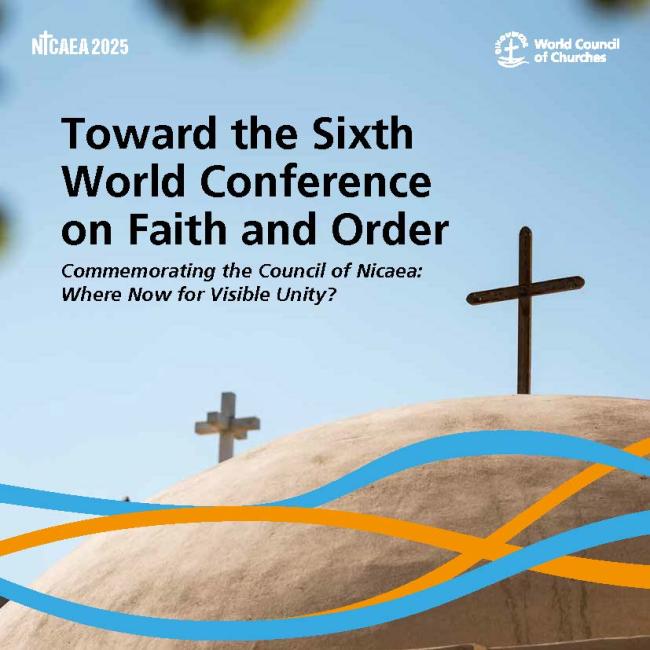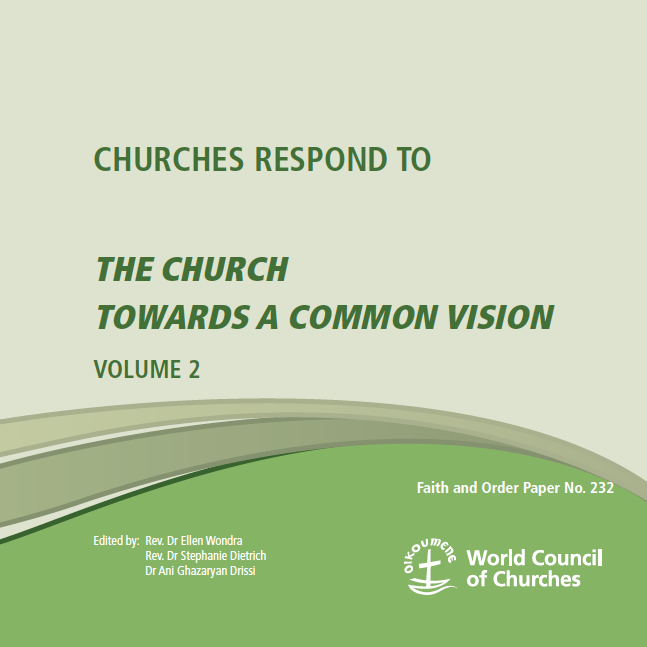Displaying 1 - 11 of 11
Commemorating the Council of Nicaea: Where Now for Visible Unity?
24 February 2024
Towards a Global Vision of the Church Volume I
Explorations on Global Christianity and Ecclesiology, Faith and Order Paper 234
14 November 2022
Churches Respond To The Church: Towards A Common Vision Volume I
Faith and Order Paper No. 231
23 February 2021
Churches Respond To the Church: Towards a Common Vision Volume II
Faith and Order Paper No. 232
23 February 2021
Love and Witness
Proclaiming the Peace of the Lord Jesus Christ in a Religiously Plural World
18 January 2021
Called to Be the One Church: Faith and Order at Crete
Report of the 2009 Meeting of the Plenary Commission — Faith and Order paper No.212
15 February 2012
One Baptism: Towards Mutual Recognition - A Study Text
Faith and Order Paper No. 210
01 January 2011










